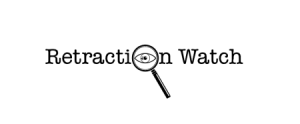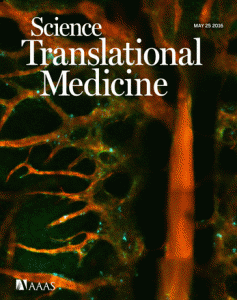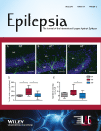 Dear Retraction Watch readers: Those of you signed up for our emails for every post may have wondered why we haven’t sent you any emails since Saturday. Well, it wasn’t because we didn’t want to. We had a technical glitch, which we’ve now fixed. Apologies for that, and here are links to the posts that appeared this week. We’re posting them in case you missed them. Thanks for reading! Continue reading Some posts you may have missed: Impressive amounts of plagiarism; PhD revocation; a poll, and more
Dear Retraction Watch readers: Those of you signed up for our emails for every post may have wondered why we haven’t sent you any emails since Saturday. Well, it wasn’t because we didn’t want to. We had a technical glitch, which we’ve now fixed. Apologies for that, and here are links to the posts that appeared this week. We’re posting them in case you missed them. Thanks for reading! Continue reading Some posts you may have missed: Impressive amounts of plagiarism; PhD revocation; a poll, and more
Month: June 2016
Author “committed serious mistakes,” finds Taipei investigation
 An investigation at Taipei Medical University found that an author made “serious mistakes” when preparing a manuscript.
An investigation at Taipei Medical University found that an author made “serious mistakes” when preparing a manuscript.
The journal prompted the university to investigate the paper, which looks at the role of a protein in repairing arteries after an injury.
The retraction notice explains:
Continue reading Author “committed serious mistakes,” finds Taipei investigation
Fraudster’s colleague faked data, too
 A week after announcing that a researcher formerly at the University of Chicago had faked the results of more than 70 experiments, the U.S. Office of Research Integrity announced yesterday that one of his colleagues also falsified data.
A week after announcing that a researcher formerly at the University of Chicago had faked the results of more than 70 experiments, the U.S. Office of Research Integrity announced yesterday that one of his colleagues also falsified data.
According to the ORI, Karen D’Souza Continue reading Fraudster’s colleague faked data, too
Lawsuit against publisher over retraction comes a step closer to reality
 An author has begun the process of taking legal action against a publisher for retracting his paper.
An author has begun the process of taking legal action against a publisher for retracting his paper.
As we reported last month, John Bishop, the CEO of an independent media company called Crocels, based in Pontypridd, Wales, argues that by taking down his paper, De Gruyter defamed him and breached a contract — their agreement to publish his paper. Now, Bishop has sent the publisher what’s known in the UK as a “letter of claim.”
In the letter, Bishop writes:
Continue reading Lawsuit against publisher over retraction comes a step closer to reality
What does “reproducibility” mean? New paper seeks to standardize the lexicon
 What is the difference between “reproducible” and “replicable”? And how does each relate to results that are “generalizable” and “robust”?
What is the difference between “reproducible” and “replicable”? And how does each relate to results that are “generalizable” and “robust”?
Researchers are using these terms interchangeably, creating confusion over what exactly is needed to confirm a scientific result, argues a new paper published today in Science Translational Medicine.
Here’s how the US National Science Foundation (NSF) defines “reproducibility,” according to the authors: Continue reading What does “reproducibility” mean? New paper seeks to standardize the lexicon
Paper reports data from PET/CT scan, years before it arrived
 Authors have retracted a study just three months after publishing it, upon realizing they made “several critical errors.”
Authors have retracted a study just three months after publishing it, upon realizing they made “several critical errors.”
For one, the authors didn’t actually collect the data they claim to in the title of the paper, which reported on methods to screen patients for recurrence of lung cancer. The authors included data from positron emission tomography/computed tomography (PET/CT), collected from 2003 to 2007 — but their institution didn’t have a PET/CT scanner until 2009. Instead, the authors had mistakenly reported the results of PET scans alone, which may not find tumors as effectively as PET/CT.
Here’s the retraction notice in Medicine, which explains the nature of the error in more detail. (Note: One of the authors supplied some missing text, in brackets.)
Continue reading Paper reports data from PET/CT scan, years before it arrived
Epilepsy researcher gets retraction, correction after former colleague flags work
 Epilepsy researcher Toni Schneider has received a retraction and a correction in quick succession, after a former colleague raised red flags about the work.
Epilepsy researcher Toni Schneider has received a retraction and a correction in quick succession, after a former colleague raised red flags about the work.
The retraction for Schneider, based at the University of Köln in Germany, is for “unintentional inclusion of erroneous data” due to limitations of the recording system used in the paper, according to the notice.
Marco Weiergräber, a former colleague of Schneider’s, has claimed that the authors of the paper did not use the test properly. The journal editor, however, told us he believes the original analysis is an “honest mistake,” and there is “no evidence” to suggest that the authors intentionally published incorrect analyses.
Here’s the retraction notice, issued by the journal in March 2016: Continue reading Epilepsy researcher gets retraction, correction after former colleague flags work